Stewart Clelland is an MEd Critical Enquiry student at UHI and an RMPS teacher. With support from our Student Development Fund, Stewart was able to travel to Africa on an educator’s residential trip. He kindly got in touch to share a bit about his fascinating experience living and working there over the summer.
In the vibrant classrooms of East Africa, where dreams take shape against all odds, the aspirations of young hearts know no bounds. Children dream of becoming accountants, lawyers, nurses, engineers, teachers, and doctors. They dream of a better future for themselves, their families, and their communities. But not all children have the same opportunities. Some children are born into poverty, others are girls, and still others live in rural areas with class sizes of over two hundred pupils. What type of teacher can stand before a class of two hundred daily? With children leaving for the day as they came—on empty stomachs? During the summer of 2023, I had the privilege to work with those in such a context. And amidst a landscape besieged by adversities that claw at the very essence of life itself, I saw miracles happen every day.
What follows is a personal account of my journey to Uganda and Rwanda with Global Learning Partnerships (GLP). Endorsed by Education Scotland, GLP is an intense and immersive professional learning development opportunity focused on facilitating innovative teaching methods in promoting global and sustainable education. I was able to participate in this opportunity thanks to a generous donation by UHI’s Student Development Fund.
The rain clouds off to my left lit up with flashes of lightning. Ahead, the road was barely visible—the rain had just let up. Perched on the back of a small motorcycle, known locally as a boda, we were en route to Kinumi village in the Masindi district of Western Uganda. The local teachers had kindly offered to take me to the market. Our visit stretched longer than expected, and the rain came pouring in, veiling our view and turning the road ahead into a hazy blur cleansed of all but the usual red dust. I wasn’t bothered. In the rain, I appreciated the wind against my hands and face. Lush green fields passed by, sugarcane glistened with water, and tiny villages nestled amidst the hills daubed out scenes I’ll never entirely forget. And, if I am honest, amongst all the extraordinary experiences I encountered in Africa, living and working there, those nights on the motorcycles were the most life-affirming.
The days, however, were spent in simple awe. I worked with resourceful, joyous people committed to helping children learn under the most challenging of conditions—my evenings were no less educational, I drank the local beer and roasted maze on a charcoal fire. In Scotland, I teach Religious, Moral and Philosophical Studies (RMPS) and hold a MA in the history of Western Esotericism, which is to say, I have an interest in marginalised and persecuted religious communities.
I couldn’t help but notice then that for East Africans there was no separation between spirituality and life. People believe they are part of a larger, interconnected web of life and that their actions impact the world around them. On the bike, in the rain, I became more aware than ever of my surroundings, the road, the environment, the sky. I felt like I, too, was part of something bigger. As the bike rattled along, I reflected on my own somewhat abstract commitment to sustainability, and how the role of a teacher holds universal significance, transcending language barriers and curriculum differences into something familiar and altogether vital. Time and again however, it was made clear to me by my hosts that the land itself was a gift from the ancestors and there was a duty to protect it.
Africa is a kaleidoscope, and as I was to learn, this belief underpins traditional African farming methods, water conservation, and, more importantly, the Bantu philosophy of Ubuntu.
Emphasising the importance of community and shared humanity, Ubuntu teaches that we are all connected and are responsible for caring for each other and the environment. The importance of community was evident in the people I met, of course; resulting in strong social networks that can support sustainable development. For instance, whilst quickly labelled a muzungu—a Bantu word that means ‘wanderer’, originally pertaining to spirits, the term is now predominantly used to refer to white people—I was also quickly given an empako (praise name) or sign of social identity. I was brought into the community and named Amooti, from a Luo word Amoto, that in Bunyoro-Kitara refers to someone who genuinely respects others, thinking and speaking well of them.
As a postgrad in my second year of a MEd in Critical Enquiry at UHI, I am passionate about sustainability and culture, especially how our identities and religions shape our relationship with the environment—the name Amooti then had unexpected resonance for me.
I am fascinated by how our cultures and religions influence our relationship with the natural world. Education is key to fostering more sustainable relationships between people and the planet. Some cultures deeply revere nature, while others see it as something to be exploited.
Our identities play a role in how we interact with the environment. Education can help people to appreciate the diversity of cultures and religions and to see how these differences can be a source of strength and resilience. This is something I explore in my own classroom, and will continue to do so with renewed insight.
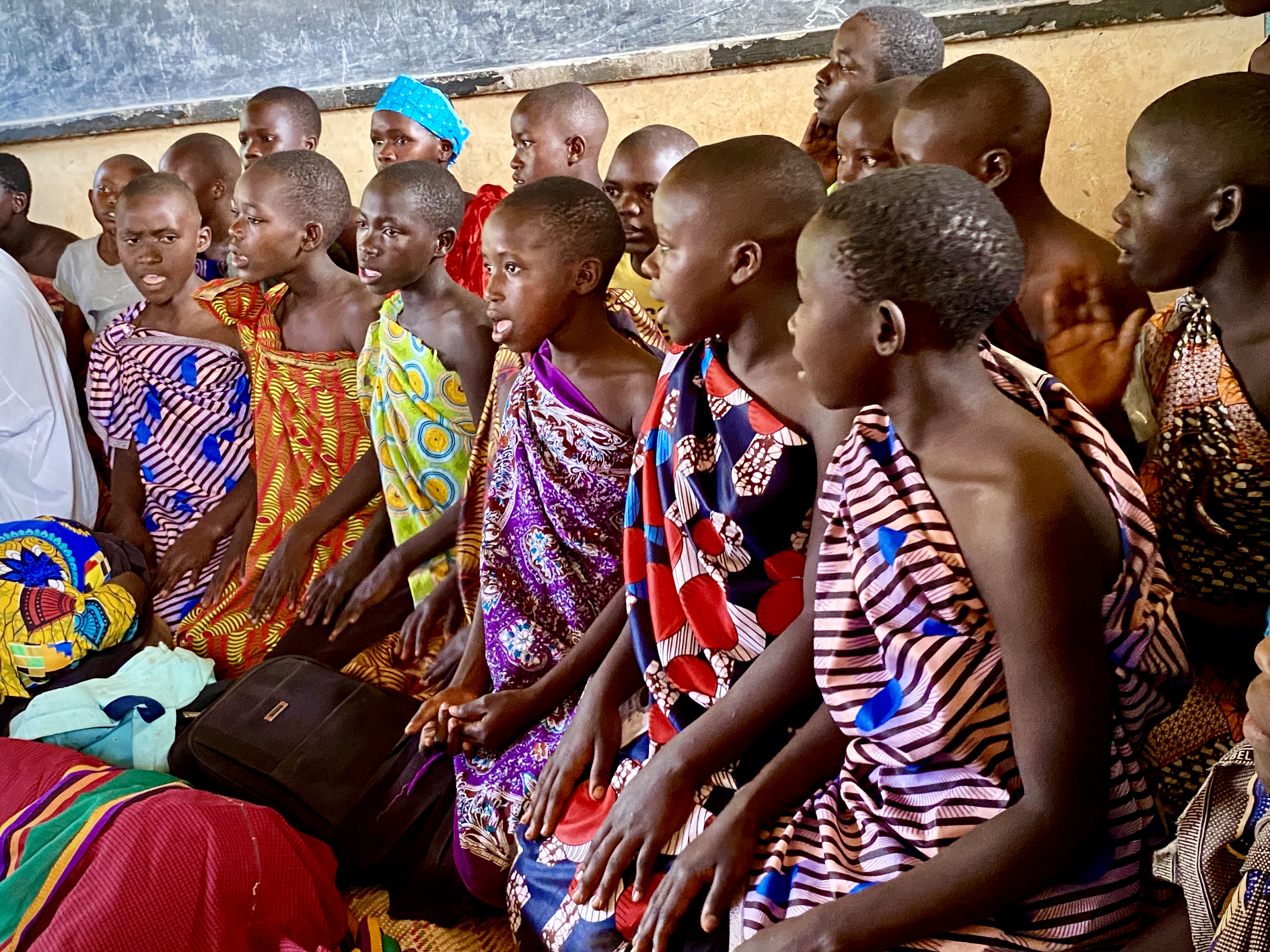
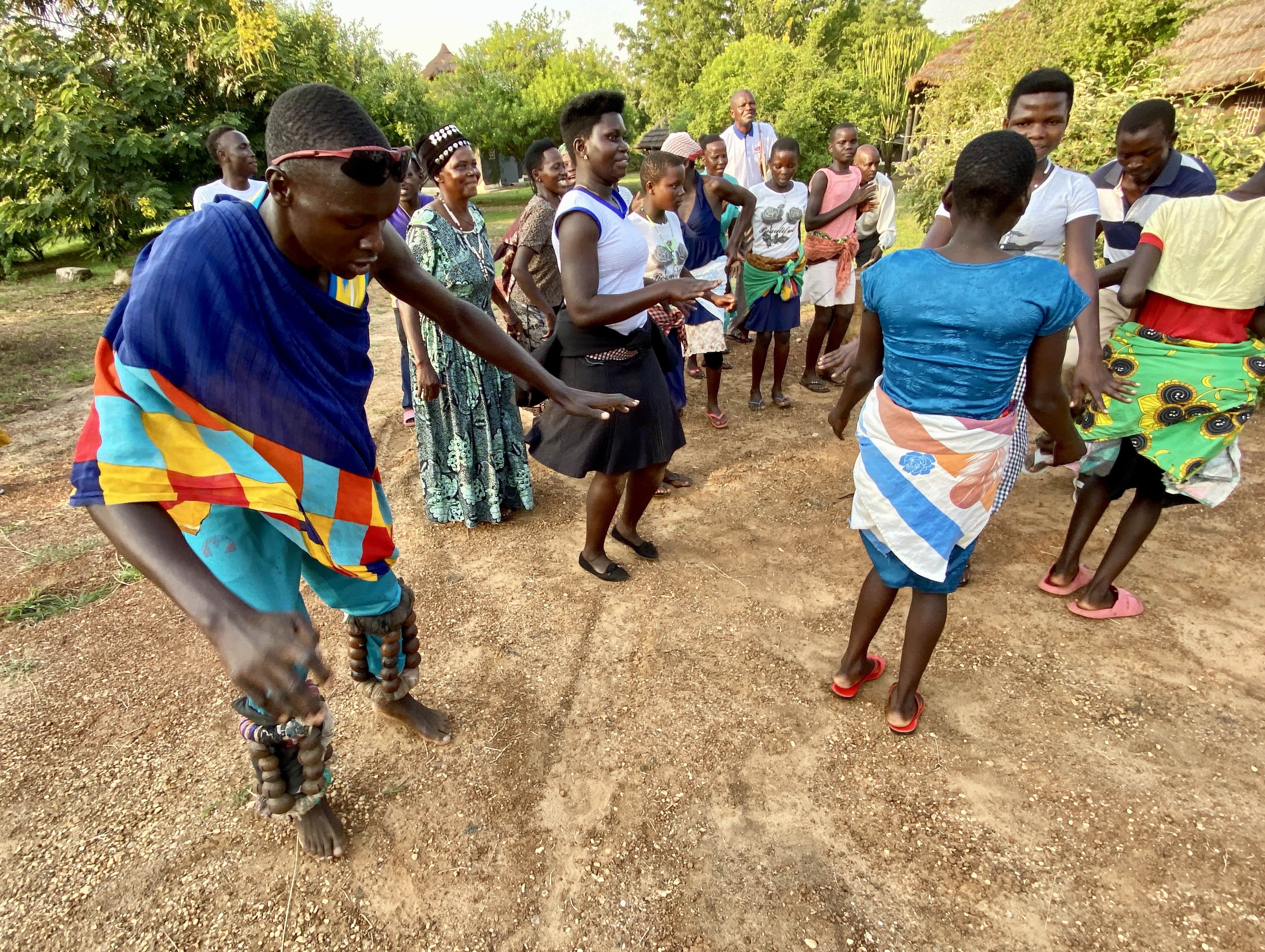
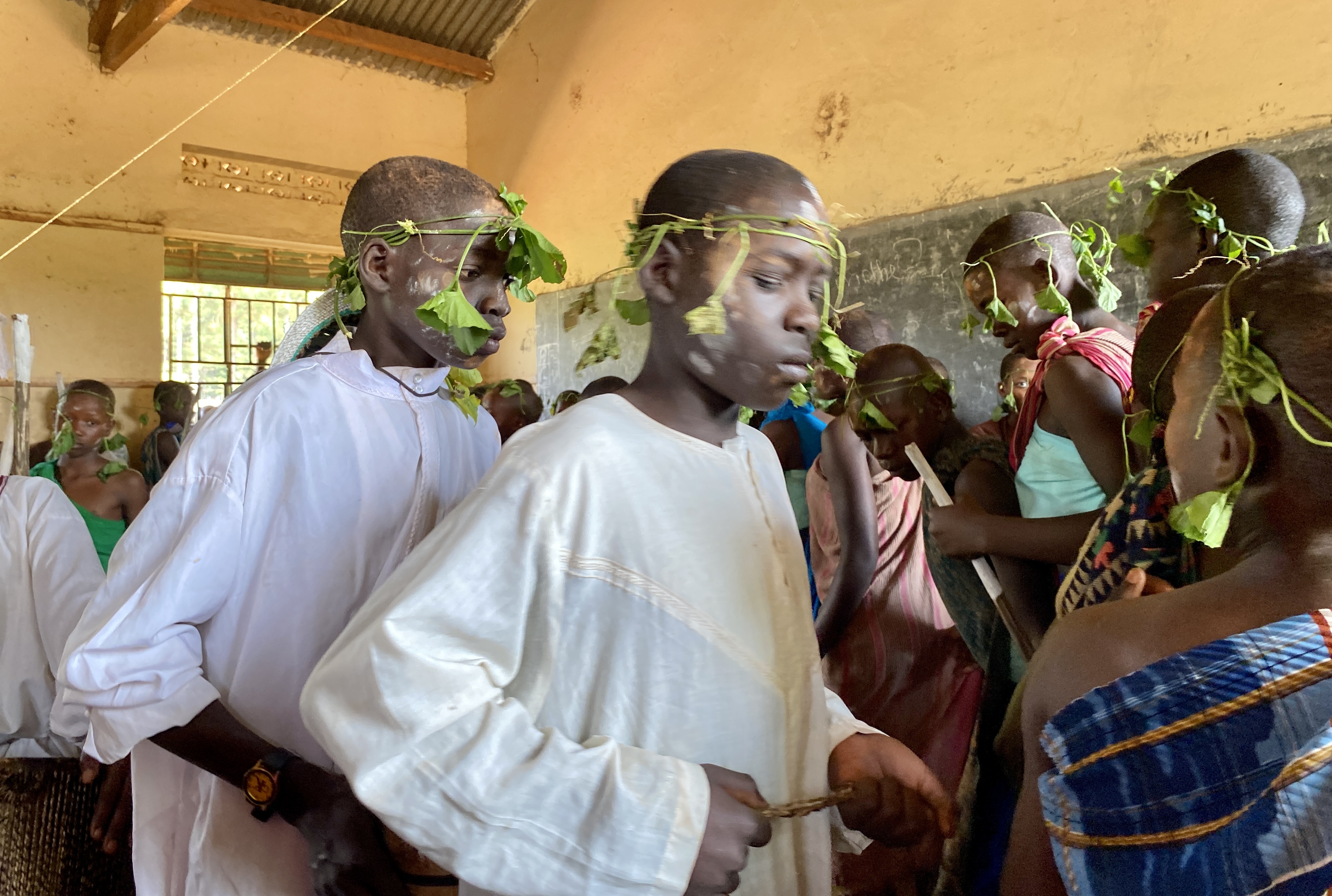
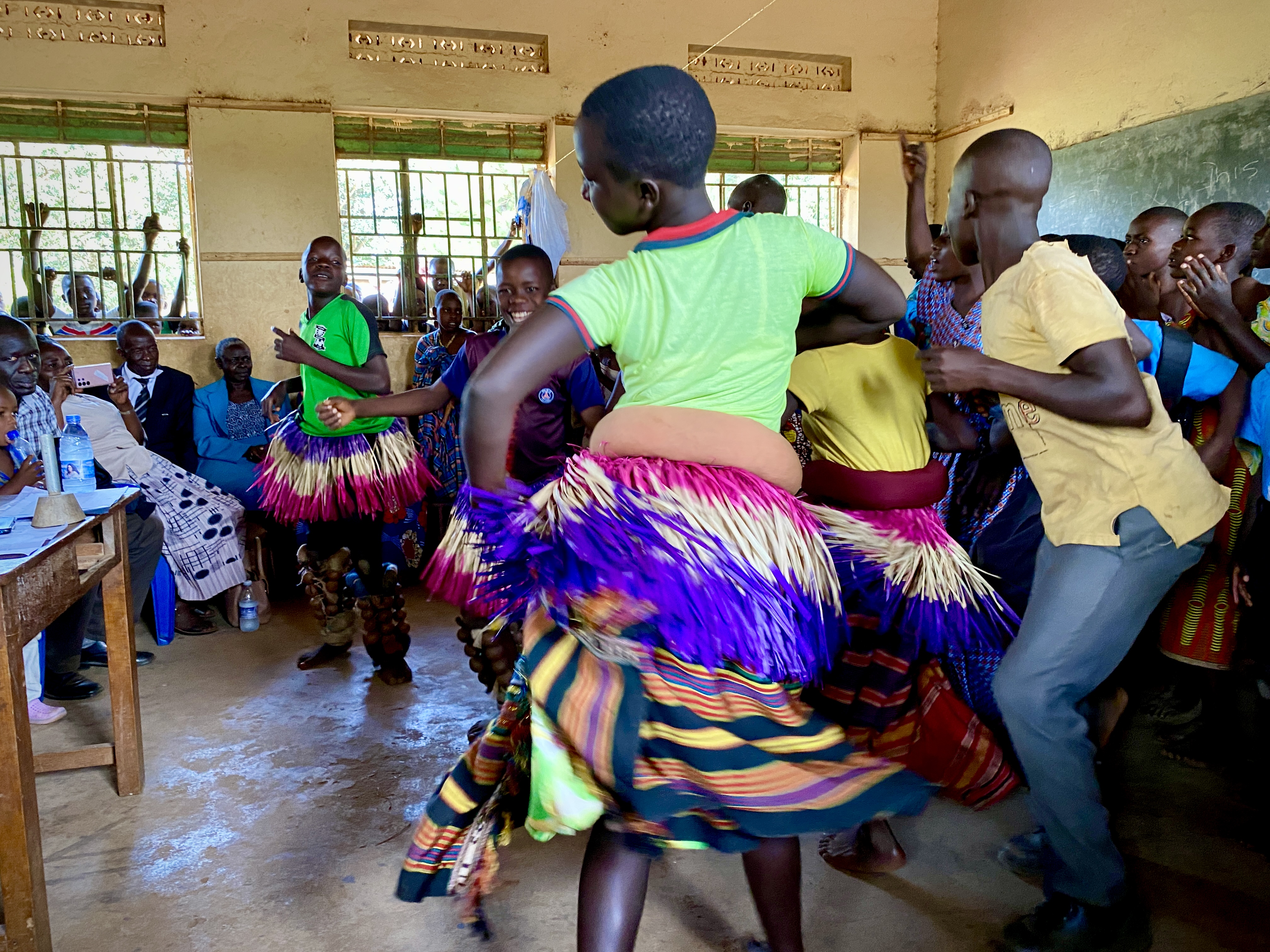
In Uganda, I met and learned from teachers using creative and engaging methods to teach diverse, overflowing classes of more than two-hundred students using recycled materials. Supported by Redearth Education, a volunteer-led organisation delivering teacher training directly to government primary schools, their focus was squarely on positive pupil outcomes, sustainability, collaboration, and local governance. Working alongside them, I saw a magic to what these teachers were doing, conjuring a realm of knowledge from the simplest of resources (plastic bottles and cardboard) and infusing the classroom with the heartbeat of their community—through songs, dances, and traditions that breathed life into a dense curriculum.
Redearth has helped build the capacity of identified lead practitioners in schools to make changes in their teaching and create model classrooms and practitioners. Working in partnership, I saw this work first-hand and was impressed by the impact it was having on the lives of children. I am grateful for the opportunity to have visited and thankful for my new name, Amooti.
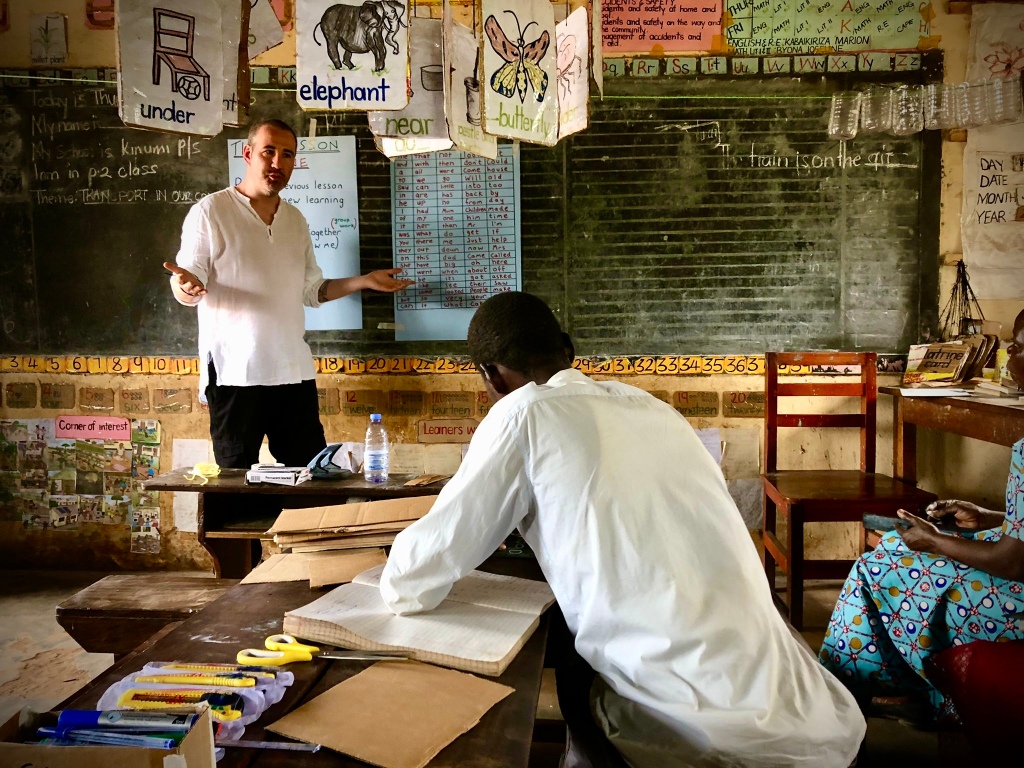
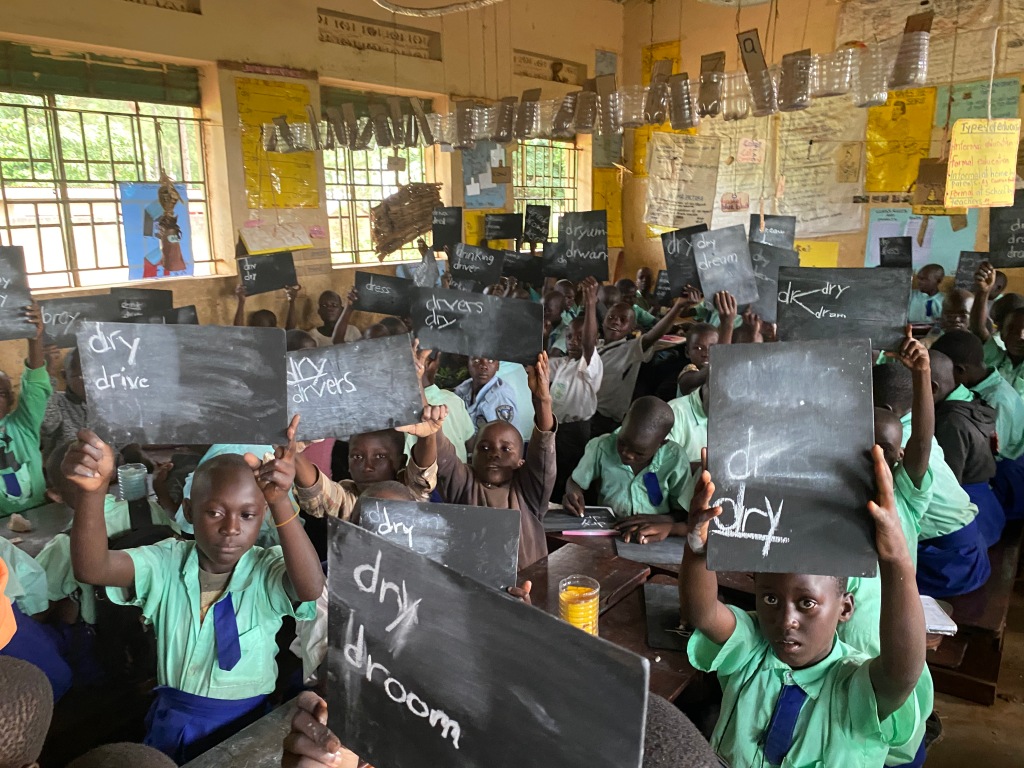
During my time in Rwanda, I had the chance to weave my experiences from Uganda into a series of workshops that centred on a teaching approach known as Teaching and Learning using Locally Available Resources (TALULAR). This method empowers educators to craft interactive and captivating lessons in a way that’s both sustainable and kind to the environment.
Collaborating closely with Inspire, Educate and Empower Rwanda (IEE Rwanda), a nonprofit with a mission, we aimed to equip teachers and trainers with an array of skills – from competency-based teaching to harnessing technology for learning, all while fostering collaboration. The heart of IEE’s mission lies in three pillars: ensuring quality teaching and learning, nurturing the growth of teachers, and forging partnerships with various organisations. Rwanda, a veritable paradise, provided the backdrop for this collaboration, and I am profoundly grateful for the chance to have been a part of it.
To witness Rwanda’s remarkable journey of resurgence after the 1994 genocide was a humbling experience, and it showed me the incredible power of resilience. The profound influence of Ubuntu on modern Rwandan culture, particularly in the realm of education, is both undeniable and inspiring.
Ubuntu is often translated as ‘I am because you are’. It has played a pivotal role in shaping the way Rwandans perceive themselves, their society, and their approach to education. In the aftermath of 1994, Ubuntu emerged as a guiding principle in the process of healing, rebuilding and decolonisation. This philosophy emphasises reconciliation, empathy, and a commitment to the community’s collective well-being.
The impact of Ubuntu on education has been especially evident as Rwanda sought to foster a sense of unity and cooperation. Education, a cornerstone of societal progress, is deeply influenced by the Ubuntu philosophy. The education system in Rwanda appears to have shifted its focus from individual achievement to collective growth. While academic excellence remains important, educators emphasise the importance of collaboration, compassion, and understanding among students. This shift is not merely about textbooks and exams but about nurturing a generation that values each other’s differences and works together for a better future.
Meeting the dedicated educators and trainers left a lasting impression on me. They exuded a beauty that was more than skin deep, a beauty that emanated from their unwavering commitment. Among the many things that struck me during the TALULAR workshops was how they encouraged participants to embrace creativity and resourcefulness. Armed with sticks, leaves, plastic bottles, and stones – everyday materials – the teachers were challenged to reimagine their use in teaching. The ingenuity that emerged from this challenge was nothing short of astonishing.
The workshops didn’t just focus on individual brilliance; they also fostered a culture of collaboration. Teachers were nudged to collaborate, to share lesson plans and exchange ideas. This not only strengthened their community but also made adopting the TALULAR approach all the more appealing. The impact of these TALULAR workshops is bound to be far-reaching. With teachers and trainers dispersed throughout every corner of Rwanda, the positive effects will echo on a national scale. I’m genuinely thankful to have played a role in this transformative work and look forward to witnessing the uplifting changes it will usher into Rwandan education.
The GLP trip was an eye-opening experience that has changed the way I think about education. I learned about the importance of using innovative methods to teach global and sustainable education, and I saw first-hand the impact these methods can have on students’ lives.
This holistic approach to education, reflected in the Ubuntu spirit, has helped me see how to foster a deeper connection between knowledge and the real world. None of this would have been possible without the invaluable support of the UHI Student Development Fund.
‘This opportunity was partly funded by our 2022-23 Student Development Fund. The fund has supported UHI students since 2009, expanding their horizons through financial grants to pursue courses, residentials and other experiences that are often missed due to financial barriers that come with them.
Our Student Development Fund desperately needs donations in order to run in 2023-24 – if you can, please head to our webpage to find out how you can support unique opportunities like Stewart’s. Thank you.
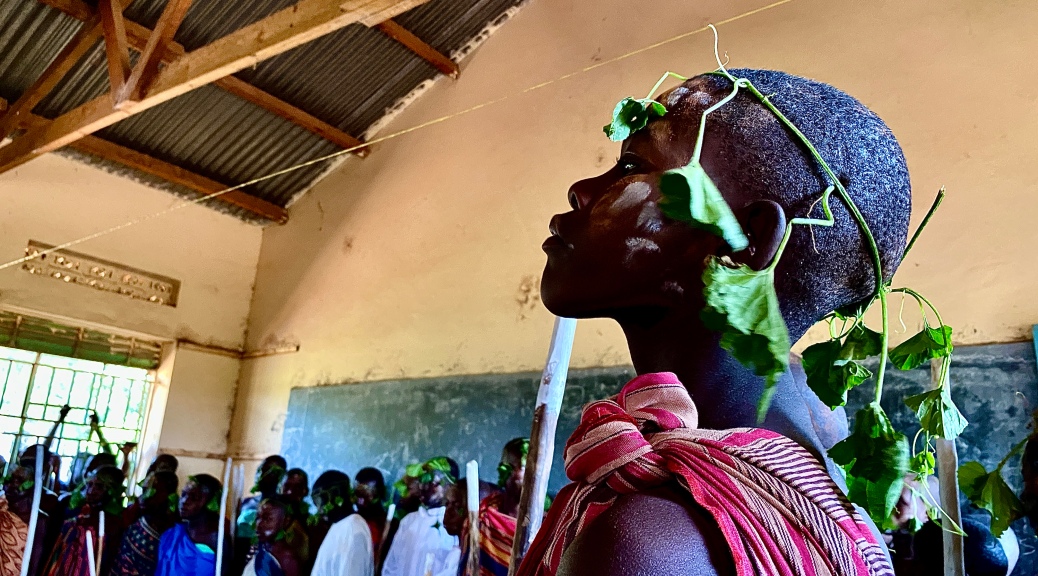
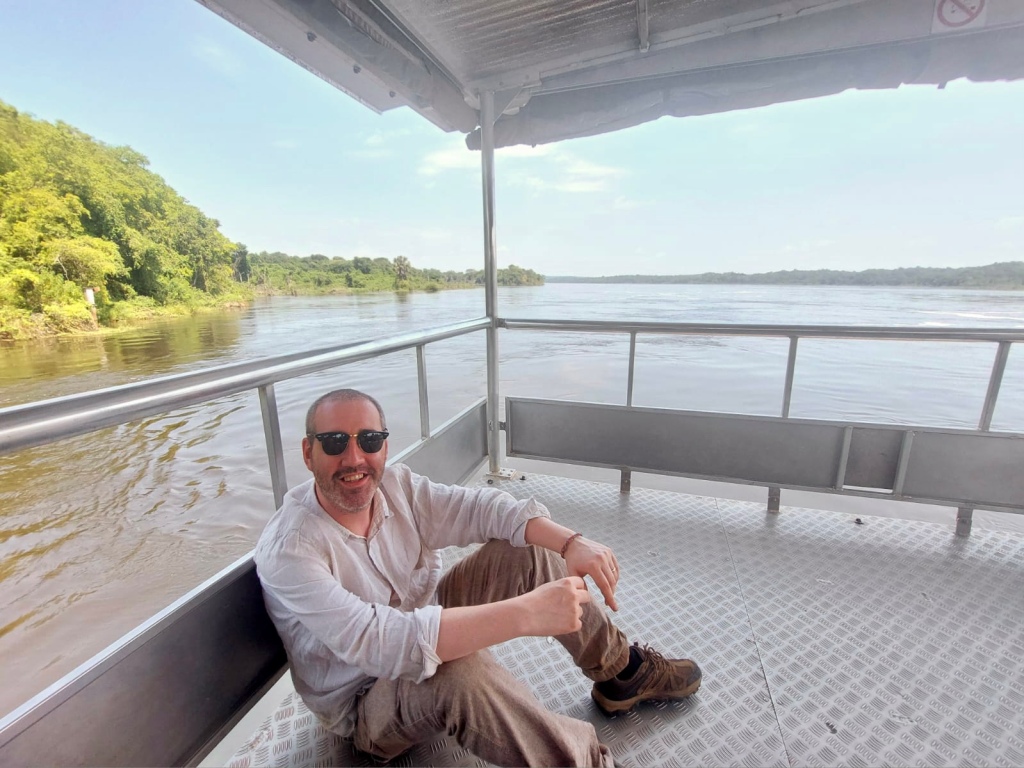
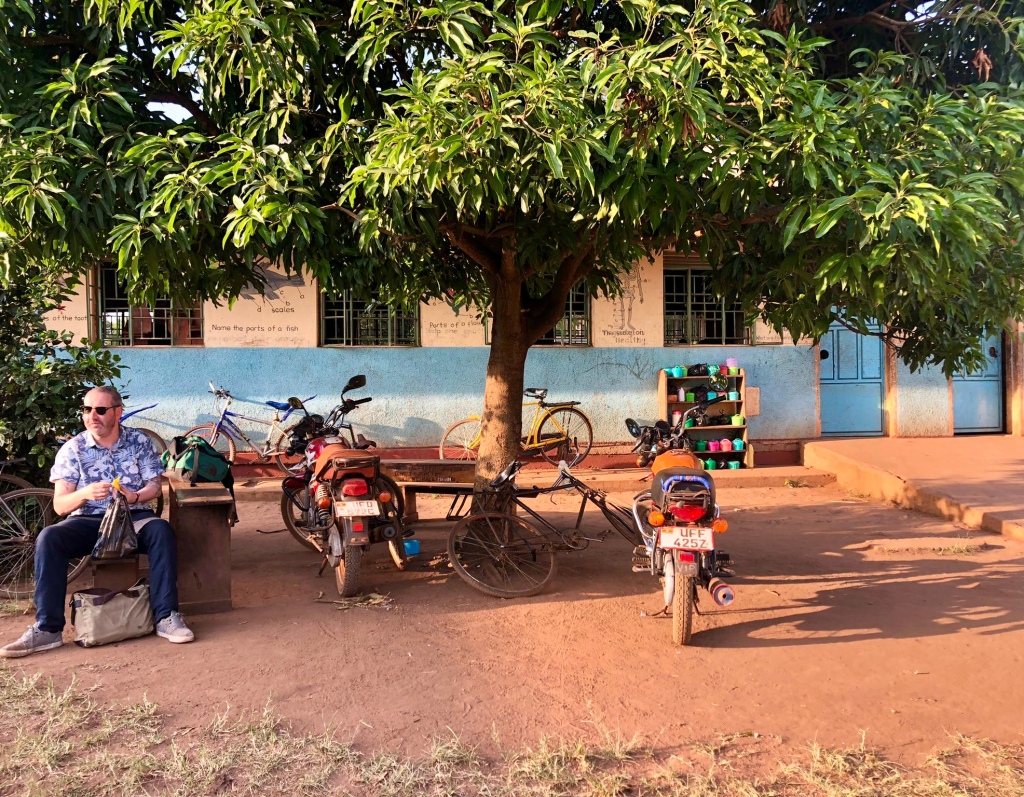
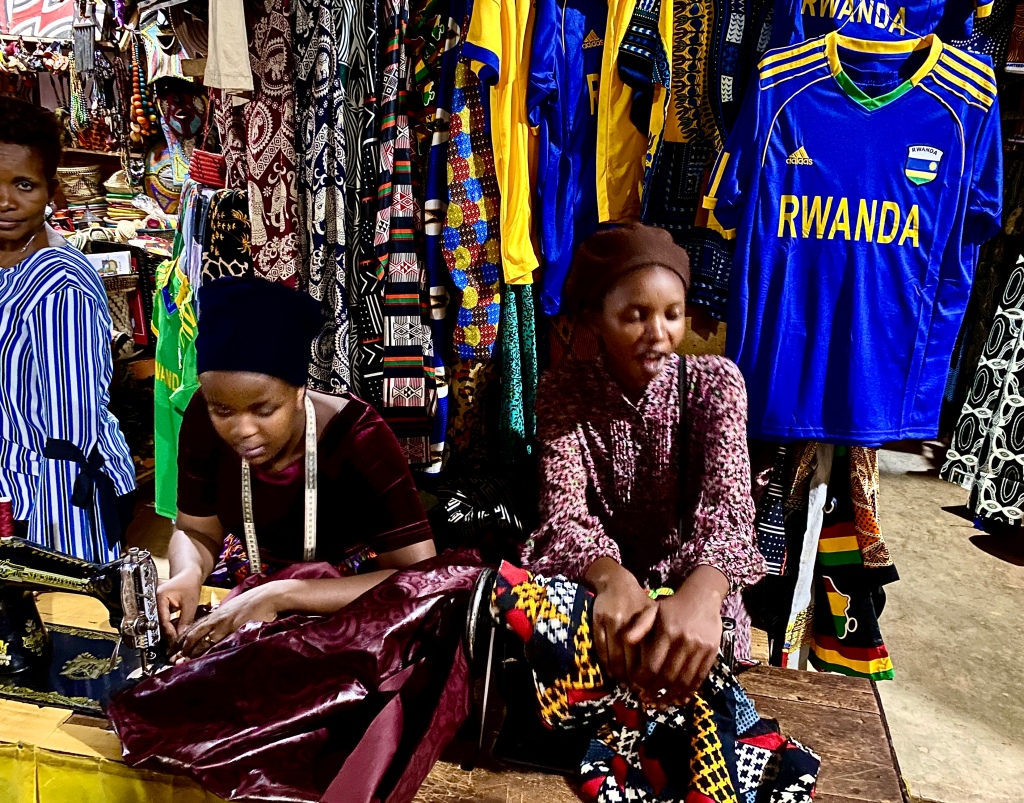
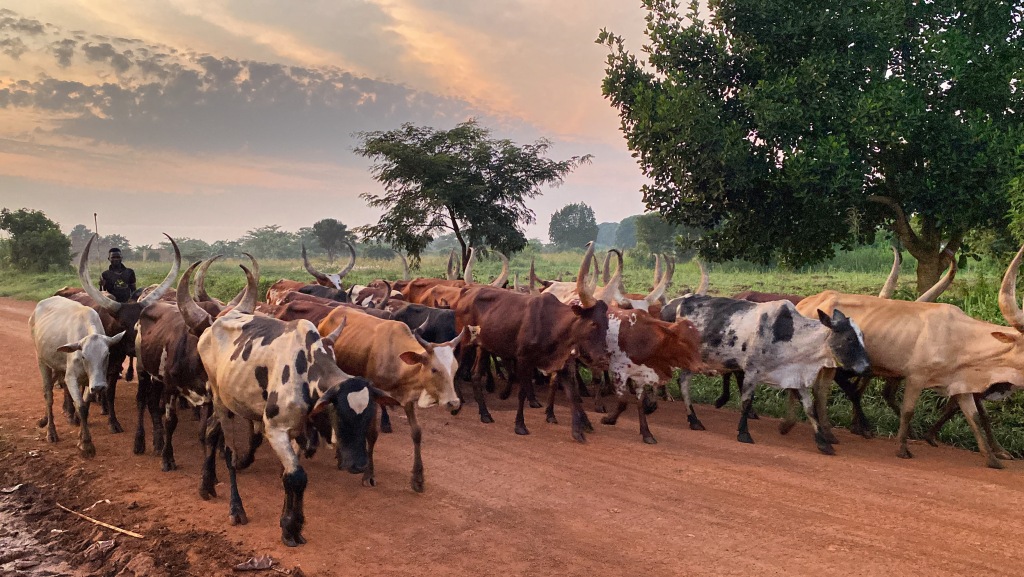
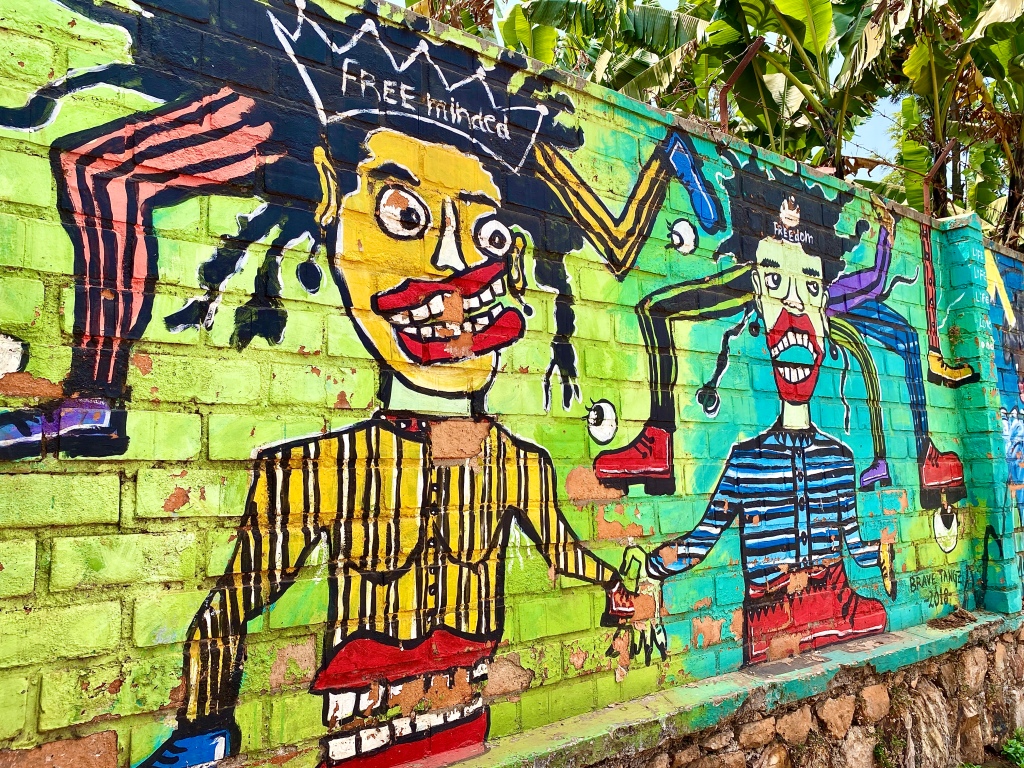
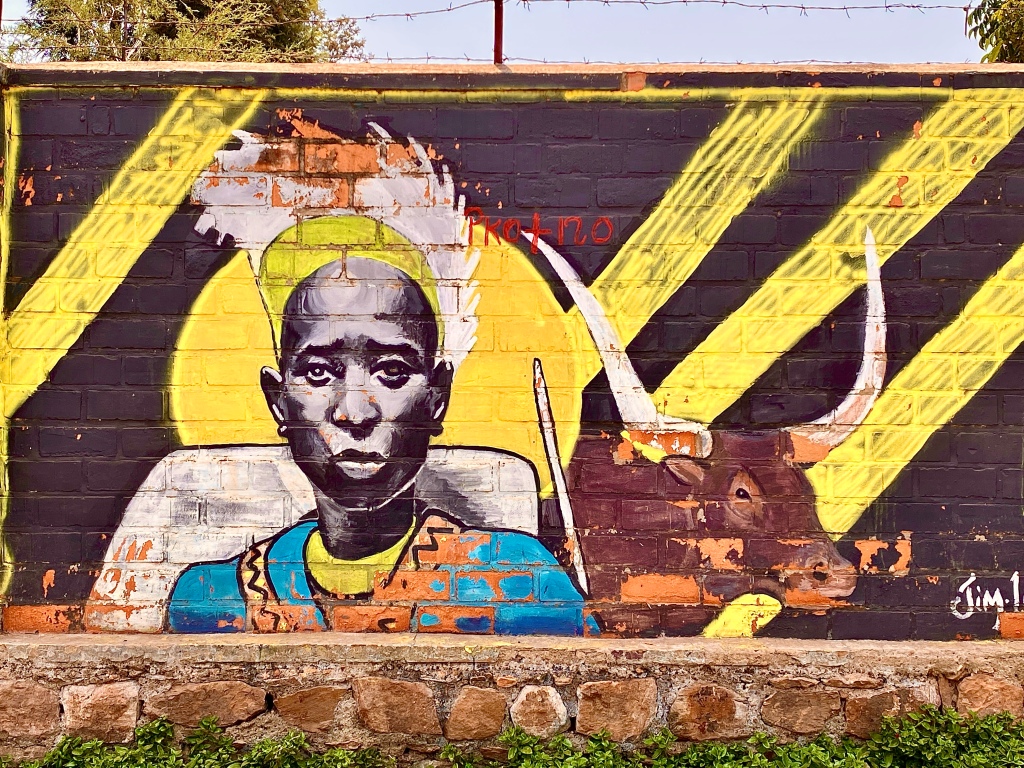
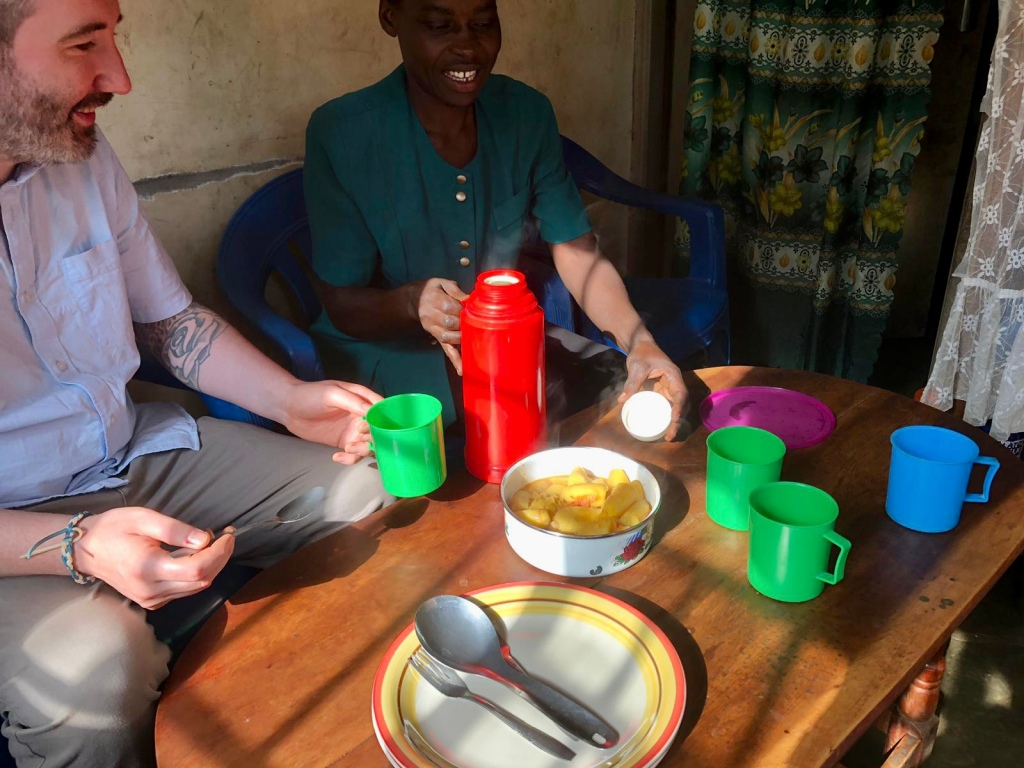
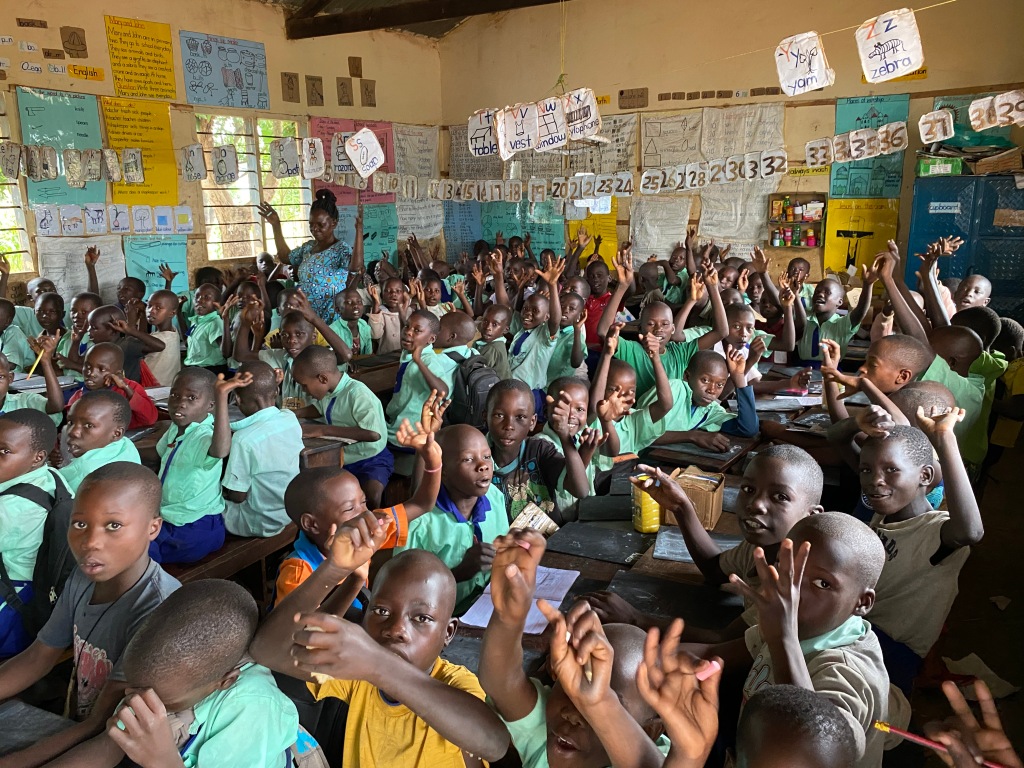
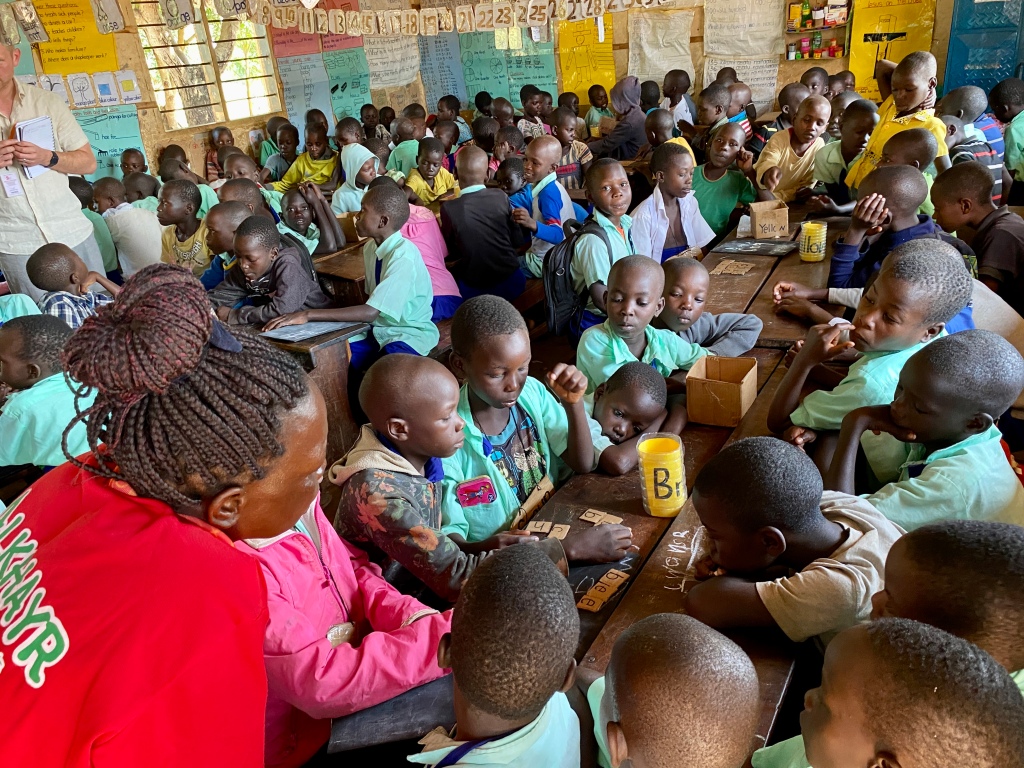
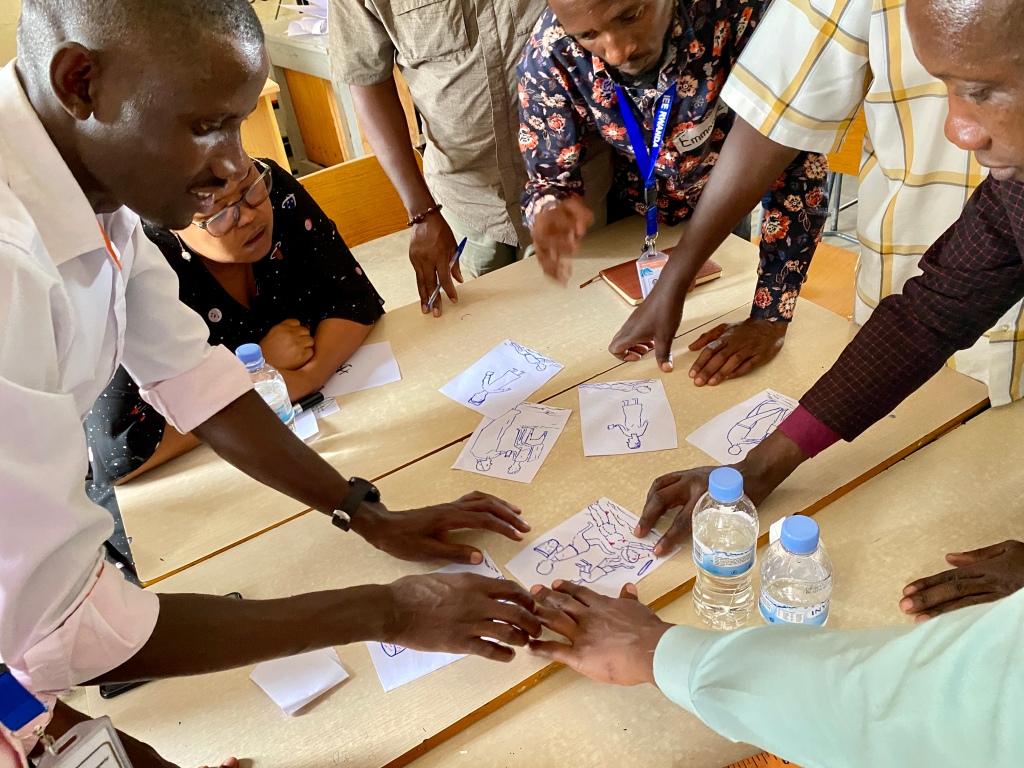
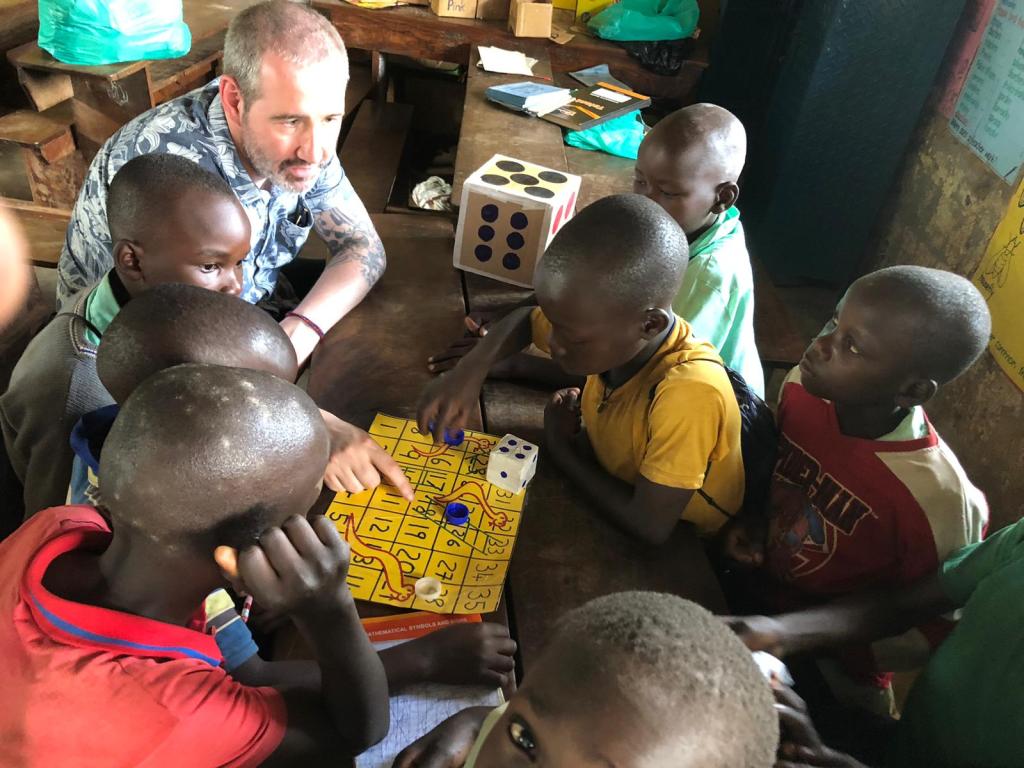
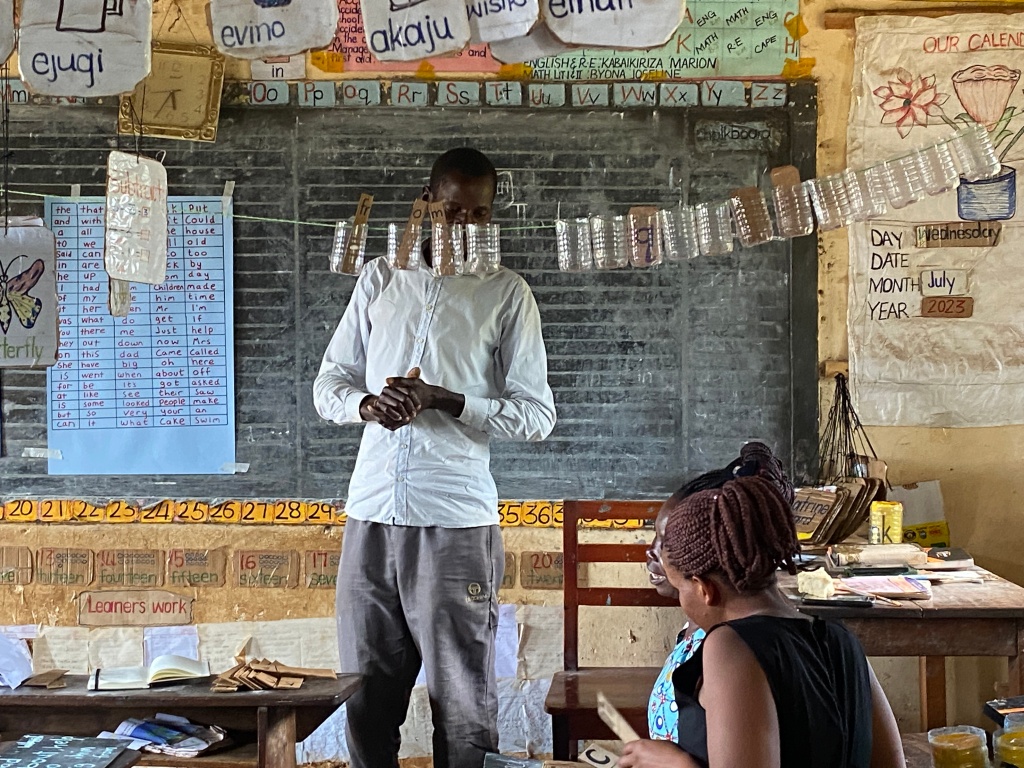
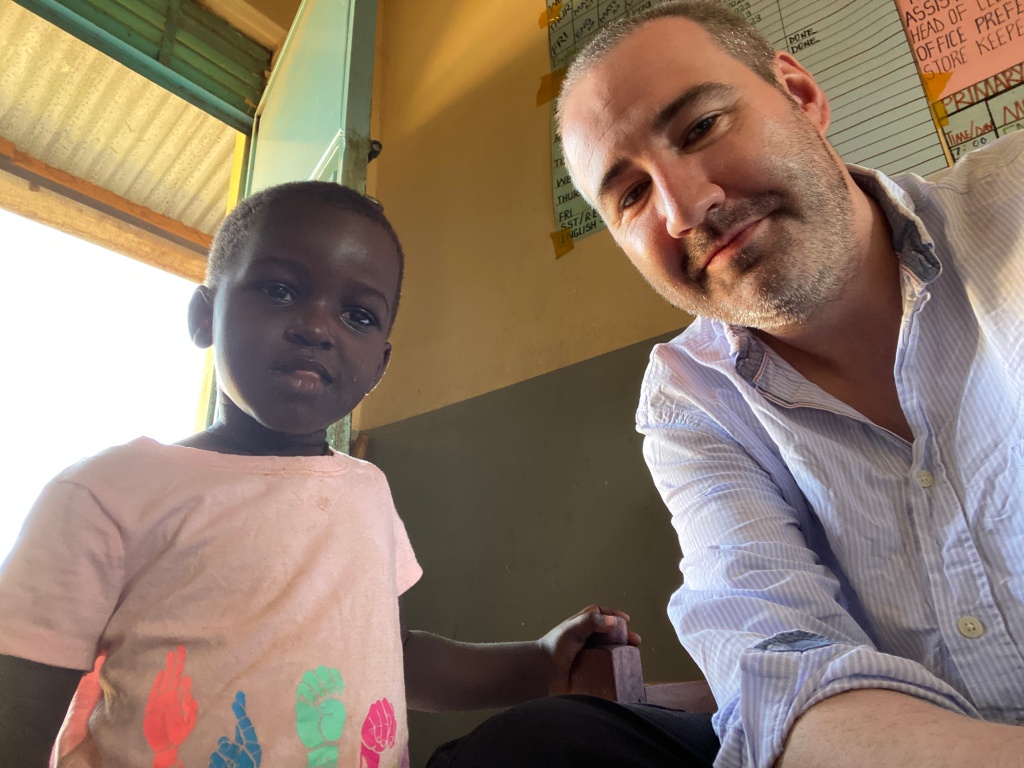
2 thoughts on “Strength and Resilience: My life-affirming experience teaching in East Africa”